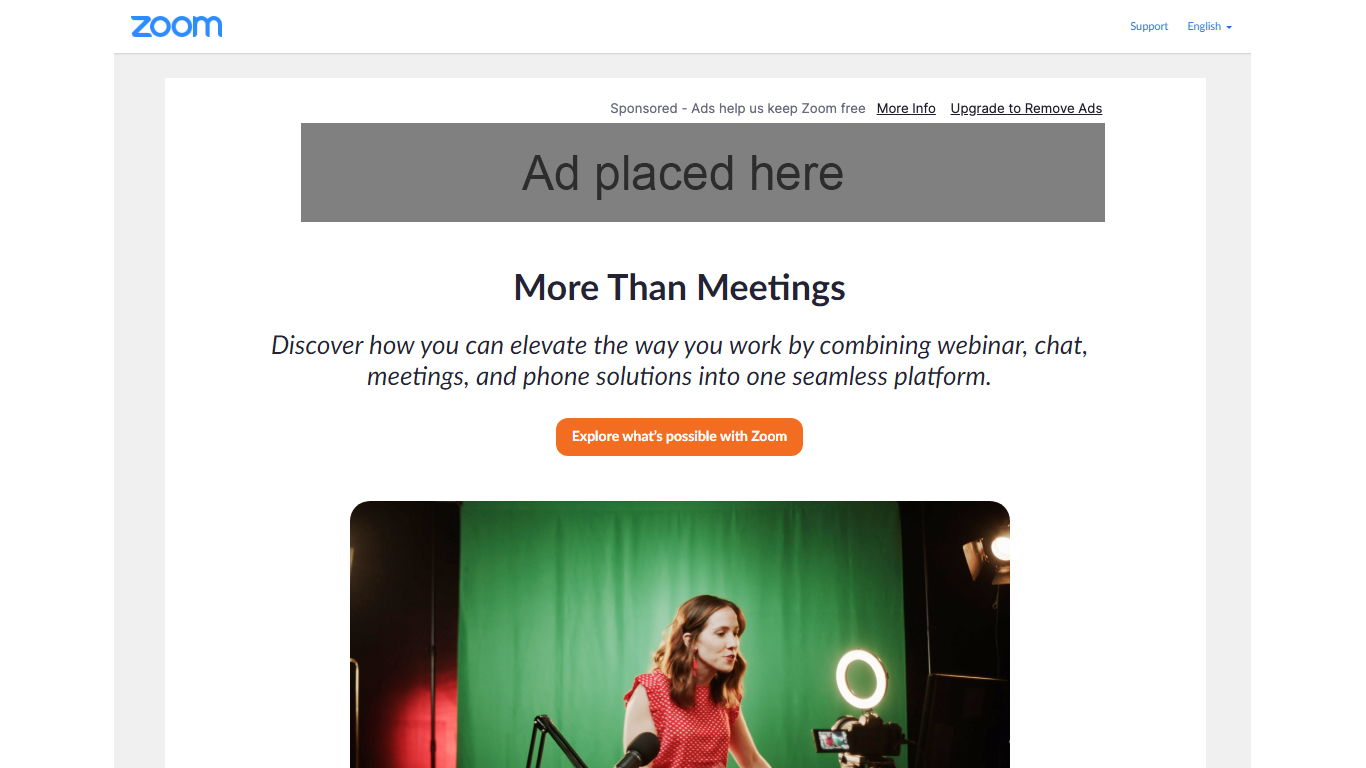Zoom is introducing a pilot advertising program that will show ads to users on its “Basic” free tier. The company says the ads will support investments and enable it to continue providing its platform to free users.
Basic tier users will only see ads if they join a meeting hosted by another Basic tier user. For the initial test, ads will be displayed on the browser page users see when they end their meeting. It’s possible that Zoom may show ads in other areas of the user interface once initial testing is concluded.
As part of the pilot, Zoom users will see a banner on its website that provides a link to its cookies management tool so they can manage which ads they are shown. Zoom also notes that it has updated its Privacy Statement to make it clear that it will not use meeting, webinar or messaging content for any marketing, promotions, or third-party advertising purposes.

Image Credits: Zoom
Although the company has made it clear that users won’t see ads during meetings, this latest move is a significant change for Zoom. The platform’s free basic service lets users host group meetings for up to 40 minutes, which allowed Zoom’s popularity to skyrocket amid the pandemic. With this latest change, Zoom is imposing a new restriction upon its free basic users, which it says is a necessary step.
“This change ensures that our free Basic users are able to continue connecting with friends, family, and colleagues with the same robust platform we have always offered,” Janine Pelosi, Zoom’s chief marketing officer, outlined in a blog post.
The change comes as Zoom has spent the last year focused on being more than just a popular video conferencing tool. Earlier this year, the company launched a $100 million fund to invest in companies building applications based on the company’s platform. Zoom recently made its first round of investments as part of the fund.
In terms of acquisitions, the company recently announced plans to acquire German startup Karlsruhe Information Technology Solutions or “Kites” for short, to bring real-time machine learning-based translation to its platform. Zoom had also planned to acquire Five9, a maker of cloud-based customer service software, but the deal was subsequently called off.
